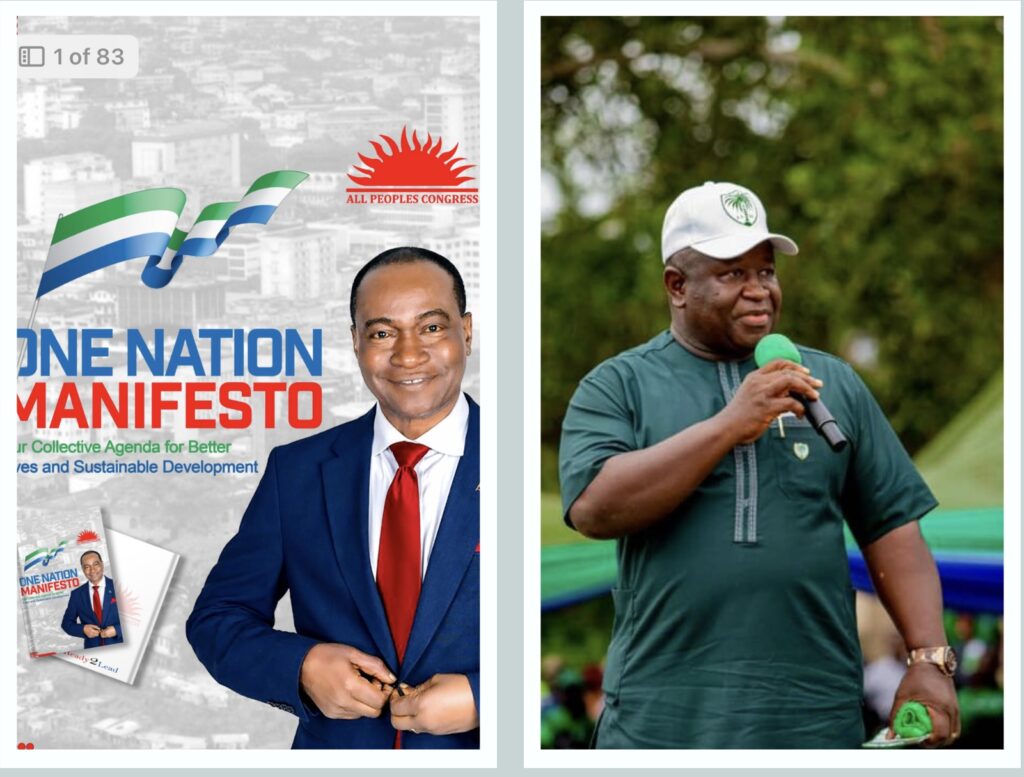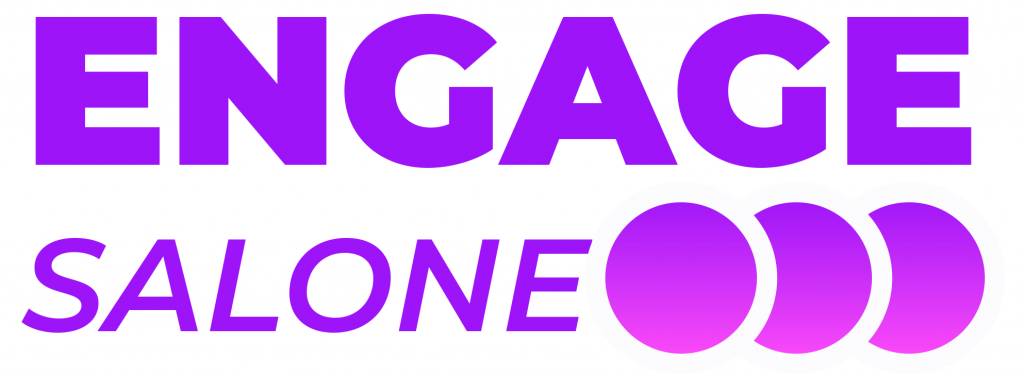Few weeks to the June elections, the two leading political parties for the June 24 elections, the Sierra Leone People’s Party (SLPP) and the All People’s Congress (APC) have finally published their long-awaited manifestos. While this is welcoming news, the documents ) fall short of the detail and rigour expected of a national political party and for a national election on a number of issues. You may choose to ignore the lack of clarity in explaining precisely and methodologically how these commitments will be met, but you cannot miss the parties’ loud silence on very important issues, which we intend to draw attention to in this piece. For the purpose of this editorial, we will focus on the gaps in the gender and climate change commitment of the SLPP and APC.
Let us start with the cross-cutting health and gender issue that female genital mutilation (FGM) is. Both parties have chosen to be silent on the matter and our dear civil society have not made it a point to express their disappointment about the parties’ blatant disregard for women and girls as far as their bodies are concerned. None of the parties have taken a position on FGM. The President, who is seeking re-election, has openly described attempts to address FGM as “political suicide”, while his wife, Madam First Lady is an open supporter of FGM even as she campaigns on girls’ rights. Now, forget the irony in the first family and ruling party and turn to the opposition who have equally failed to take a position or openly make a commitment on the archaic brutal practice that has claimed the lives of many girls.
Along the same lines of health and gender, we still have a State that criminalises safe abortion, posing a serious barrier to women’s health and their right to sexual and reproductive health rights. Safe abortion has been part of the political conversation for decades now and the election season is usually a good opportunity to put it on the agenda. The parties have not recognised it as the serious matter that it is, and rights groups have not come out to emphasise the need for women to have absolute control over their bodies and the choices they make about pregnancy. The Women’s Manifesto alludes to it but falls short of calling it what it is.
The widespread period poverty in the country and the way many organisations and individuals, including the First Lady, have been working to draw attention to it would make you think that the parties would make a clear, actionable commitment to addressing the issue. So far, interventions have been fragmented and unsustainable. The First Lady travels around the country handing out menstrual kits to school girls. We have argued before that the State needs to go beyond such handouts by making policies and legislating laws that tackle period poverty. A commitment from the parties would have offered hope and a point of accountability for whoever wins the election. As things stand, we do not know how the opposition plans to tackle period poverty and for the ruling party, girls from poor families who cannot afford menstrual pads will have to continue to depend on donations from the First Lady. What we need to remember though, is that a society where dignity kits like pads have to be handed out to girls is a society that is far below any dignifying standards.

The ruling party would trumpet their achievements on gender equality, but failing to act on FGM and guaranteeing access to comprehensive sexual and reproductive health rights and services undermines these gains. The opposition, not being bold enough to, at least, include these issues as part of their manifesto offers no alternative on these burning issues. Early in May, a BBC investigation told the story of a young woman who allegedly died of FGM way back in 2016 in Makeni, a stronghold of the main opposition APC and during an APC administration. The minister in charge then, Dr. Sylvia Blyden is accused of covering up the death—allegations she denies. This said, you would imagine that the opposition would seek to redeem itself even if the ruling party has missed the point.
Let us turn to another important area—climate change and the environment. It is encouraging that both parties make an attempt at explaining their plans on climate change and protecting the environment. Like many areas of the manifestos, the commitments on climate change and the environment are very superficial one-liners. Being the existential threat that it is, climate change and environmental issues must come as part of the parties’ top priorities, providing clear thought and actionable commitment on land management, forestry, carbon and plastic pollution. There is plastic everywhere, contributing to the filth and pollution everywhere in Freetown and elsewhere in the country. Our forest is being depleted contributing to the adverse changing weather patterns. Our beaches are filthy, thanks to poor waste management and the negligence of the authorities in addressing the plastic problem. The environment and climate change commitments in the manifesto are too tactical and basic. You would imagine that the parties would attach a high level of importance to it. Clearly, they have not and so one can assume that to them, it is only worth a few bullet points.
Expectations were high when the parties finally announced that they would launch their programmes for all to see and examine. Well, maybe everyone expected too much. What came out was probably written for social media. Or maybe the parties know how short our attention span has become and therefore decided to go for the sort of superficiality and bullet points that you see in the manifestoes, leaving out important issues as highlighted above. On that note, we must also invoke a full stop before the next notification pops up on your device.
Whatever you are up to this weekend, may it have depth.
About The Author
- Engage Salonehttps://www.engagesalone.org/author/eng21_admin/
- Engage Salonehttps://www.engagesalone.org/author/eng21_admin/
- Engage Salonehttps://www.engagesalone.org/author/eng21_admin/
- Engage Salonehttps://www.engagesalone.org/author/eng21_admin/


